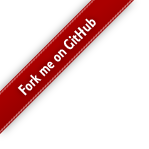Simulating the dynamics of soft matter with ESPResSo, PyStencils and LbmPy
Date:
October 10, 2022 – October 14, 2022
Location:
hybrid format: onsite course at the ICP, University of Stuttgart (Germany) with live streaming on Zoom for online participants
Register:
https://www.cecam.org/workshop-detail/1146
Notes from the Organizers
This school is currently planned as an onsite event. If the Covid-rules applicable in autumn do not allow it, we will adjust the format of the school to allow remote attendance.
Course description
In this school, students learn to conduct simulations in the fields of statistical physics, soft matter and active matter using the software ESPResSo. It is an open-source particle-based simulation package with a focus on coarse-grained molecular dynamics models. In addition, it offers a wide range of schemes for solving electrostatics, magnetostatics, hydrodynamics and electrokinetics, as well as algorithms for active matter and chemical reactions[1].
ESPResSo consists of an MPI-parallelized simulation core written in C++ and a scripting interface in Python which integrates well with science and visualization Python packages, such as numpy and PyOpenGL. ESPResSo relies on waLBerla, a high performance lattice-Boltzmann library, for hydrodynamics and other lattice-based schemes for electrokinetics and related fields[2].
In this school, after an introduction to particle-based simulations and the software interface, we will focus on the dynamics of soft matter. We will explore topics such as electrophoretic mobility of colloids, diffusion of polymers, and studying rheology using Lees-Edwards boundary conditions. In addition to particle-based approaches, we will cover the lattice-Boltzmann method for hydrodynamic interactions and a diffusion-advection-reaction solver for modelling electrokinetics and catalysis. Lectures will provide an introduction to the physics and simulation model building as well as an overview of the necessary simulation algorithms. During the afternoon, students will practice running their own simulations in hands-on sessions.
Many of the lectures and hands-on sessions will be taught by developers of the software. Hence, the school will also provide a platform for discussion between developers and users about the future of the software. Moreover, users can get advice on their specific simulation projects. Time will also be dedicated to research talks, which illustrate how the simulation software is applied, and which provide further background in the field of soft matter dynamics.
Attendance to the summer school is free.
[1] F. Weik, R. Weeber, K. Szuttor, K. Breitsprecher, J. de Graaf, M. Kuron, J. Landsgesell, H. Menke, D. Sean, C. Holm, Eur. Phys. J. Spec. Top., 227, 1789-1816 (2019) DOI:10.1140/epjst/e2019-800186-9
[2] M. Bauer, S. Eibl, C. Godenschwager, N. Kohl, M. Kuron, C. Rettinger, F. Schornbaum, C. Schwarzmeier, D. Thönnes, H. Köstler, U. Rüde, Computers & Mathematics with Applications, 81, 478-501 (2021) DOI:10.1016/j.camwa.2020.01.007
[3] M. Bauer, J. Hötzer, D. Ernst, J. Hammer, M. Seiz, H. Hierl, J. Hönig, H. Köstler, G. Wellein, B. Nestler, U. Rüde, Code generation for massively parallel phase-field simulations. Published in: Proceedings of the International Conference for High Performance Computing, Networking, Storage and Analysis (2019) DOI:10.1145/3295500.3356186


